SUMMARY
This is AI generated summarization, which may have errors. For context, always refer to the full article.
![[Newspoint] Willful indifference](https://www.rappler.com/tachyon/2024/05/np-willful-indifference-05032024.jpg)
An unusual number of Chinese nationals have planted themselves in communities bordered by Philippine waters where China maintains a menacing military presence. They are estimated between 1,500 and 4,600, and many of them have been observed to be men in their prime and university enrollees.
But officials of the host localities and schools, in Cagayan Valley, don’t look the least bit concerned. The attitude seems only to reflect willful indifference, considering that China has been forcibly and relentlessly pursuing an expansionist campaign against the Philippines for eight years now.
It all began when Rodrigo Duterte became president, in 2016. One of his first acts was to surrender control over the West Philippine Sea to China, which had begun saber-rattling after losing its claim on it in an arbitral court. The idea was to buy peace, he said, only to be promptly proven wrong. And at what cost!
Losing no time in firming up control, China built an island in that sea as a military base and began deploying naval and militia vessels in numbers. It then proceeded to rob local fisherfolk of their rightful, traditional living, bullying them away, along with their Coast Guard protectors, and also mine the grounds for endangered species and even corals. Given such indiscriminate aggressiveness, going for the minerals beneath the seabed would seem only a matter of time and further opportunity – a Chinese exploration ship is in fact seen around there now and then.
For the moment, with an indulgent president, and corrupt immigration agents and police, China decided also to push inland, sending in nationals and organizing them into cells sustained by criminal enterprises like gambling, loan-sharking, kidnapping, prostitution, and drugs. The scale of the influx was such that the serious joke was that the Philippines was becoming “a province of China.”
The COVID-19 pandemic stopped the infiltrations and slowed the criminal operations. Many Chinese, suddenly finding themselves jobless and unsubsidized after being kept in comfort they probably had never known before – some lived in exclusive villages and sometimes were driven around in fancy vans, with police escorts – were forced to return to China as soon as they could.
But the Chinese occupation of the West Philippine Sea did not ease up at all. If anything, it was reinforced, presumably in preparation for Duterte’s exit, in 2022, and because of China’s doubts about his successor.
Sure enough, President Ferdinand Marcos Jr. has cut the Duterte wing from the ruling coalition and taken on China more and more assertively, even enlisting foreign allies like the United States, Australia, France, and Japan – the West Philippine Sea, after all, is also a waterway. Moreover, Cagayan Valley is the Philippine region closest to Taiwan, a breakaway republic communist China has been threatening to grab back from the American aegis.
In pre-pandemic times, landlords and smugglers in particular profited hugely from Duterte’s pivot to China. The Chinese made the highest bid for rent and supplied the cheapest imports – their farm products, much of them smuggled in, particularly brought big money undercutting local ones.
The pandemic itself created opportunities for a killing. China’s own vaccine, Sinovac, became a favored emergency import, even if it was less efficacious yet more expensive. Philippine contracts for it, apart from other medical supplies, were cornered by cronies.
The all-too-obvious Chinese policy is to find a connection to power in a target country and pay or muscle its way in. It is thus only heedful of basic due diligence to have those local governments, universities, and landlords in Cagayan Valley explain themselves – they’ve been only too quick to put down all misgivings about their Chinese visitors to Sinophobia.
Present-day Sinophobia is actually a backlash against the Sinophilia that has carried over from Duterte’s time and now apparently contaminates Cagayan Valley. It shouldn’t be any surprise for Chinese investment, rent, and tuition to be rationalized as part of a regular business deal by those who stand to profit from it. For the disinterested, though, no deal could be presumed regular at all where it’s the Chinese who are at the other end of it. Among them, the choice of place alone where those Chinese were planted should only naturally have aroused suspicions – Davao City, the Duterte country, would have been the logical choice for any Chinese of harmless intent.
And any of them going for serious graduate studies would have gone to better-rated universities. In fact, according reports reaching the senate, some of the enrollees could not even speak the language of instruction – English – and have had to pay up to two-million pesos for a masteral without having to attend classes. It shouldn’t then be all that difficult to determine the enrollees’ true motive.
The greater challenge lies in ferreting out their higher connections – at the Bureau of Immigration, the Department of Education, and the security services. And, as always, the ultimate challenge lies in the cleanup. – Rappler.com
Add a comment
How does this make you feel?




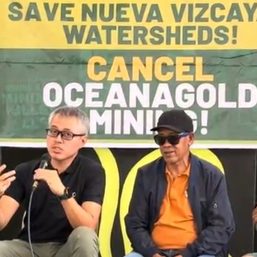






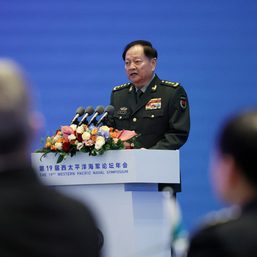

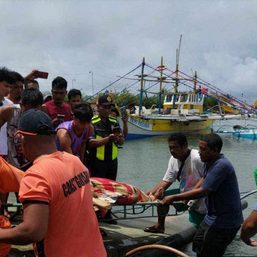
![[VANTAGE POINT] Siding with China in sea dispute is treason](https://www.rappler.com/tachyon/2023/08/siding-with-china-TL-aug-28-2023.jpg?resize=257%2C257&crop_strategy=attention)
![[Rappler Investigates] Deal or no deal, Duterte?](https://www.rappler.com/tachyon/2024/05/deal-or-no-deal-duterte-may-16-2024.jpg?resize=257%2C257&crop=422px%2C0px%2C1080px%2C1080px)
![[ANALYSIS] How have scholars confronted the war on drugs in the Philippines?](https://www.rappler.com/tachyon/2024/05/tl-scholars-war-on-drugs.jpg?resize=257%2C257&crop_strategy=attention)
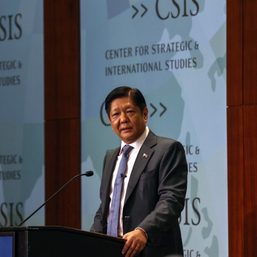

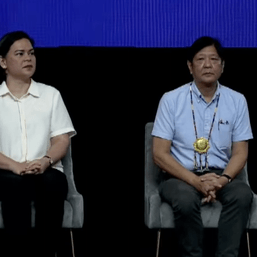


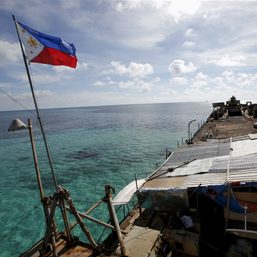

![[PANOORIN] Paninindigan ng mga sibilyan sa Pag-asa Island](https://www.rappler.com/tachyon/2024/05/TITLECARD-1.png?resize=257%2C257&crop=421px%2C0px%2C1080px%2C1080px)
![[Judgment Call] Philippine seas and a healthy dose of transparency](https://www.rappler.com/tachyon/2024/05/judgement-call-ayungin-shoal-may-16-2024.jpg?resize=257%2C257&crop=316px%2C0px%2C720px%2C720px)


There are no comments yet. Add your comment to start the conversation.